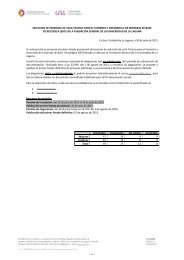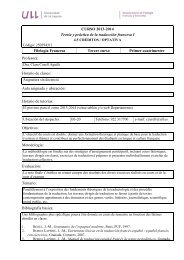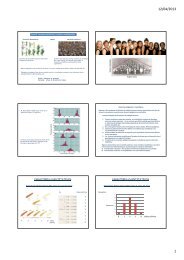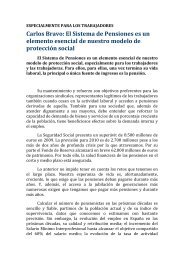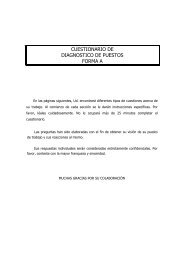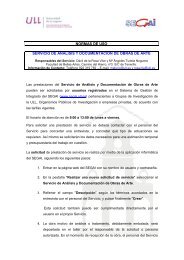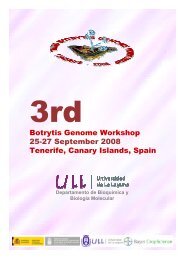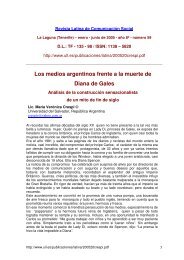20 CHAPTER 3 REVIEW OF CONJOINT ANALYSIS THEORY ...
20 CHAPTER 3 REVIEW OF CONJOINT ANALYSIS THEORY ...
20 CHAPTER 3 REVIEW OF CONJOINT ANALYSIS THEORY ...
You also want an ePaper? Increase the reach of your titles
YUMPU automatically turns print PDFs into web optimized ePapers that Google loves.
A number of methods exist to identify attributes of interest. These include<br />
literature review, focus group discussions, and individual interviews. In the initial phase,<br />
identification of the appropriate attributes and their relevant levels, a focus group session<br />
was used. Since this study deals with consumers’ attitudes toward agricultural<br />
biotechnology and the labeling of these types products, focus group interviews would<br />
provide the attributes that are most important and those that most influenced the<br />
respondent preference toward labeling preferences.<br />
Focus Group Discussion<br />
Researchers often use qualitative research methods to gain insight into consumers’<br />
preferences (Teague et al 1995). One frequently used qualitative research method are<br />
focus groups research. Focus groups are very important, not only because they aid in<br />
developing questions for the questionnaire, but in providing the researcher with the forum<br />
where individuals’ beliefs, opinions, and perceptions can be explored. Focus group<br />
interviews consist of between six and twelve participants in which the researcher<br />
moderates a group discussion on the topic of interest (Harrison et al., 1998). Although<br />
small in numbers, focus groups uncover attitudes and opinions found in the general<br />
population. Small groups are preferred to large group because interaction among group<br />
members is increased, which facilitates discussion in greater depth. Advantages of focus<br />
group research includes an increased interaction between all participants and the<br />
researcher, visual aids and tangible products can be circulated, and areas of specific<br />
interest can be covered in greater depth. Some disadvantages of focus groups include, the<br />
need for experienced researches, the complexity to organizing, and the procedure is<br />
expensive when compared to other methods.<br />
27






